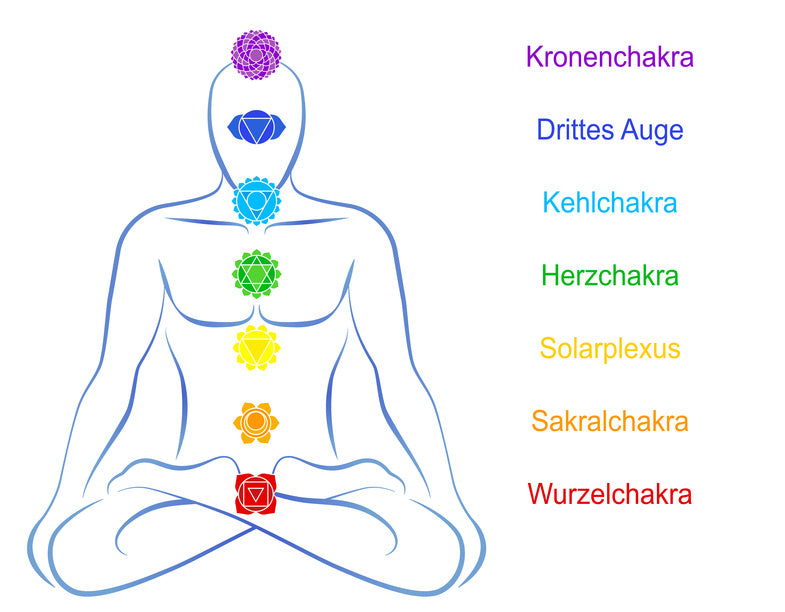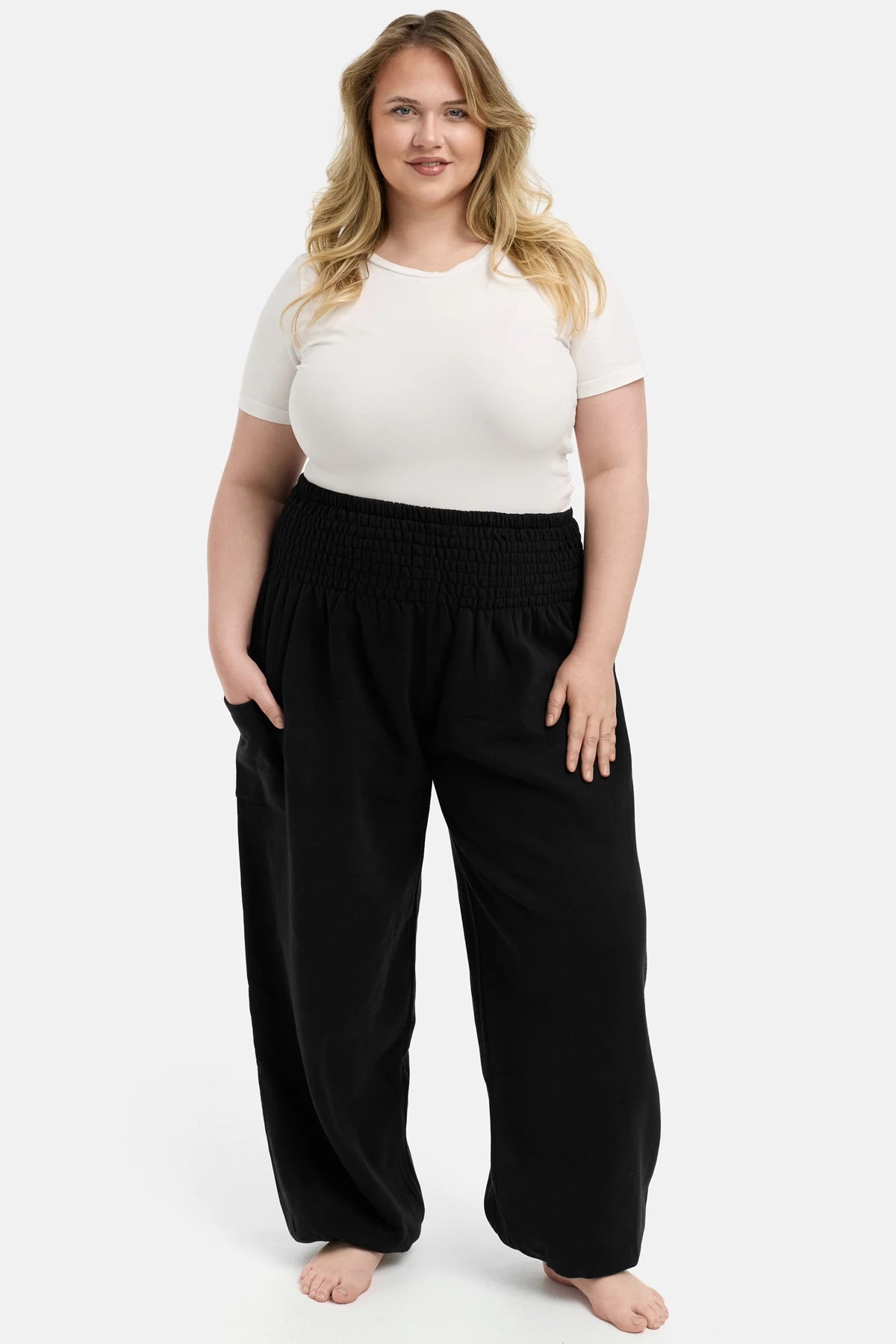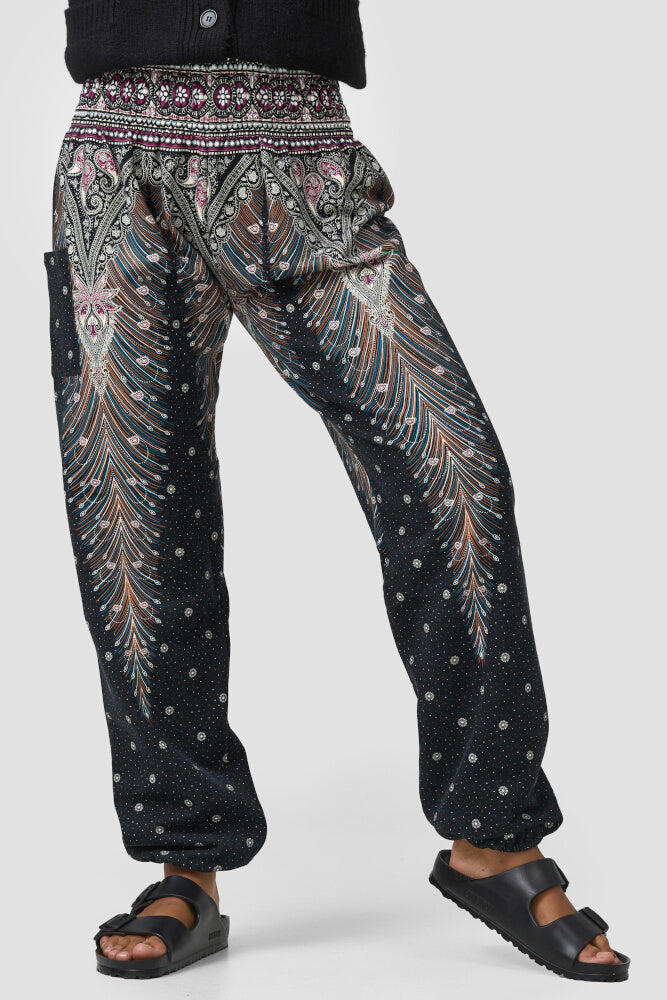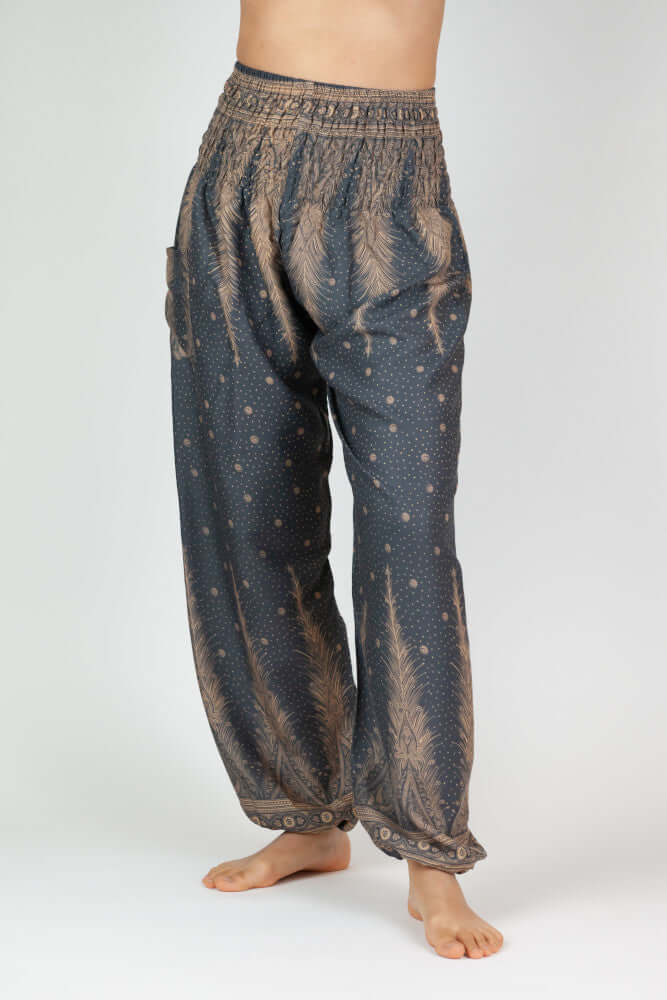
Table of contents
How you can let the energy flow in your body again
The seven chakras are often mentioned in Hindu and Buddhist teachings. But what does it mean and how can you benefit from this Far Eastern teaching yourself?
A small disclaimer in advance: Even if you don't personally identify as a spiritual being and such things sound a bit far-fetched to you, I think that you too can take something from the chakra theory and integrate it into your life. I find it really exciting to see how ancient Far Eastern teachings and modern psychological theories as well as science and medicine often want to convey very similar things, but each discipline does it in its own unique way. The chakra theory was also developed, for example, by C.G. Treated young. So just let it sink in, maybe you can really take something away from this blog article.
What are chakras?
In addition to our physical body, which we can see and touch, we also have an energetic body. We receive and send energy through the human aura that surrounds each of us. Maybe you know situations in which just the presence of someone triggers good or bad vibes in you.
According to chakra theory, there are seven main energy centers (= chakras) that control the flow of energy and are therefore responsible for absorbing and passing on our life energy.
They are arranged symmetrically in our body like a column from the end of our spine up to the top of our head. Each chakra represents a specific area of our life and has its own color. In the next section I will go into more detail about the seven chakras.
By the way, the chakra theory was already 1500 years BC. handed down through the Upanishads, is therefore very old. It spread from India and the Hindu culture to the entire East Asian region.
The 7 main energy centers

Illustration by taohealth.de
Root Chakra
The first chakra is the root chakra (Sanskrit: muladhara). It represents our energetic connection with the earth. Like the strong roots of a tree, it provides stability and security in our lives, symbolizes the satisfaction of our basic needs and releases physical energy. It therefore forms the basis for all other chakras. It is located at the level of our tailbone, i.e. at the lowest end of the spine. It is associated with the color red.
Those who are well developed at this level have a healthy, resilient body. On the other hand, those who show weaknesses here are often low in energy, weak and have a weak immune system.
Sacral chakra
The second chakra is the sacral chakra, too svadhisthana called. In a rich orange tone, it symbolizes creativity, sensuality and sexuality. It is of great importance for the new creation and is located two finger-widths below the belly button. This chakra also processes our feelings and releases emotional energy.
Those who are well developed here have their emotions under control, enjoy life and are emotionally well balanced. When the sacral chakra is blocked you feel unfulfilled, listless and depressed.
Solar plexus chakra
Next is the solar plexus chakra manipura. It is located in the solar plexus area, in the soft area between our ribs. From the center of the body it radiates into the rest of our body like a sun. Therefore, the solar plexus chakra is also associated with a bright yellow color. It represents willpower, determination and self-confidence. Through this chakra we come into action.
Anyone who is well developed in this area knows exactly what needs to be done and carries it out with enthusiasm. These people are full of drive and want to achieve their goals, come what may. If you have problems in this area, you talk a lot but don't implement things, are rather lazy and like to complain about your own life.
Heart chakra
We continue with the heart chakra (Sanskrit: anahata). It sits in the center of our chest and represents our ability to feel compassion, humanity and love. In a bright green, it symbolizes the social level that connects everything.
People in whom the energy in the heart chakra can flow properly are professionals at maintaining contacts, making friends and having deep relationships. However, when this level is blocked, you often feel unaccepted and alone.
Throat chakra
The light blue throat chakra, too vishuddha called, represents the level of communication. It represents our individual expression and our ability to communicate our feelings and thoughts. It sits in our throat and connects the heart chakra to the forehead chakra, creating the connection between thinking and feeling. That's what makes this level so important.
If you have weaknesses in this area, this often results in problems expressing yourself clearly and you are often misunderstood. So the “soul expression” is blocked in a certain way.
Brow chakra
The sixth chakra will also third eye or ajna called and stands for the mental level. It is located just above the eyebrows, in the middle of the forehead. It has the color indigo blue, and this is where our thoughts arise, which determine our entire actions. Our ideas for the future are forged here into an actionable plan: By constantly repeating and forming new thoughts, we attract the life that we imagine in our inner eye of our vision. The forehead chakra is also the source of our self-knowledge, intuition and inner wisdom.
Crown chakra
The seventh and final level is the crown chakra sahaswara, that sits above the top of our head. The color of this chakra is purple or purple. It represents the infinity of the collective consciousness and thus provides access to the universe. Spiritual energy arises here, which you can perceive in the form of faith. Because faith represents the reality you experience, who or what you are, what you can or cannot do, and what you believe you are. All of this forms into deep-seated beliefs that determine your entire behavior.
So whatever you believe, it determines your life. How often do we believe that we are too bad, untalented or too weak for something? Through a stronger belief in ourselves and a fulfilled crown chakra, we can reach our full potential and follow the path that fills our lives with meaning.
What does chakra theory mean for my life?
The model of the seven levels of consciousness or main energy centers is a great illustration that can help you grow personally.
One strives for a balance of all seven chakras and all seven levels are considered equally important. But many people are blocked on more than one of the levels and are therefore unable to achieve their full potential in some areas of life. So if you deal with the chakras and open them, you will contribute to your personal development and create more balance in your life.
So how do I know if my chakras are flowing freely or are blocked?
We usually recognize when things aren't going well in one area or another of our lives or when something is bothering us - be it our belief system, unhealthy relationships, our career, our living situation or our financial situation. If we feel neglected or unfulfilled in one or more of these areas, this is a good indication that the energy in this area or chakra cannot flow freely. Things often go better in the areas of life that we have dealt with the most in our lives. This is where we know ourselves best. But the more unbalanced your chakras are, the more you can ultimately learn about yourself and your life.
If you would like to find out more about the balance of your chakras, you can here a chakra test make. Of course, this isn't the key to solving all your problems, nor is it a really sophisticated scientific questionnaire. But the test can give you some guidance and perhaps some further food for thought.
What techniques can I use to resolve these blockages?
In chakra theory there are many different ways to open or heal your own chakras. For example, you can start with your diet or balance out individual areas using healing stones and medicinal plants. But it often helps to think more about the affected levels.
But you can also use meditation to deal with your chakras and open them one after the other. It's not for nothing that chakra meditations are among the most popular. There are meditations that deal with a single chakra. This makes sense if you know you are blocked in that one chakra and want to improve the flow of energy in that area.
There are also chakra meditations that go through all the chakras one after the other and combine them with an affirmation for each area. I would like to introduce you to such a more general (but no less effective) chakra meditation in my next blog post as part of the series Meditation techniques for beginners.
If you would like to find out more about the topics of mindfulness, healthy eating or sustainability, take a look here over.





























1 comment
Hallo, viele vielen dank für die wunderbare erklerung.
Ich beschäfte mich sehr lange für die energetische entwiklung, abar leider…
ich soll noch dazu sagen ich habe keine helfer.
Habe mehrere hundert spirituelle kommentare mir angehört. Zum bei spiel: ekerhard Tolle,
Christina von Dreien, und noch viele andre. ich medietire oft aber die scakren habe ich Sie
vernachlesiegt.
Und danke dir dafür das du mich wieder daran erennerst
vielen dank
liebe liebe Grüsse
Damiano i.
damiano ienco
Leave a comment
This site is protected by hCaptcha and the hCaptcha Privacy Policy and Terms of Service apply.